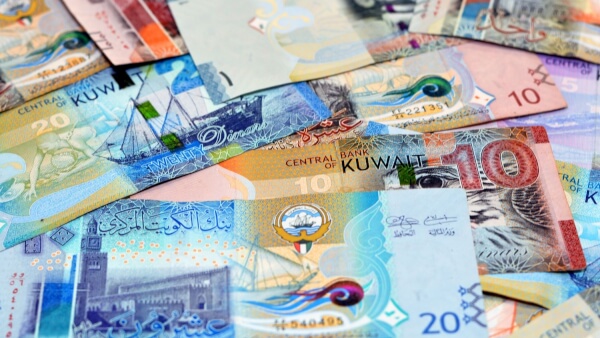Mozambique corporate tax - guide for international expansion
Learn about the corporate tax system in Mozambique, its current rates, how to pay your dues and stay compliant, and best practices.

Thinking of starting a business in France, or expanding your UK business there?
It’s a natural next step for many UK entrepreneurs, due to France’s close proximity and the access it offers to the EU Single Market. The country has plenty to offer to new and growing businesses, but it also presents a number of challenges too.
In this comprehensive guide, we’ll cover all the essentials you need to know about doing business in France.
This includes the benefits and obstacles, tips on business etiquette and corporate culture, and a rundown of some of the most business-friendly cities and regions in France.
Research is key to success when expanding to France, to understand local culture, business etiquette and regulatory requirements.
| Consideration | Description |
|---|---|
| Opportunities/benefits |
|
| Challenges |
|
| Most attractive cities and regions for foreign entrepreneurs |
|
There are lots of reasons why UK businesses choose to expand their operations to France. One of the most obvious is proximity, as the UK has strong transport and logistical links to the country through the Channel Tunnel. It’s also a large country, which means access to a potential market of over 66 million people.¹
But there are many other benefits too, which we’ll explore in more detail below.
One of the biggest advantages of expanding to France has to be access to the EU Single Market. It’s the world’s largest single market, with a GDP of approximately €18.3 trillion and a population of around 450 million.²
The EU has a unified currency, free trade between member countries as well as common standards and regulations for products and services. This makes everything from trade to compliance easier.
As a leading EU member and home to the Organisation for Economic Co-operation and Development (OECD) headquarters, France is famous for the quality of its workforce. This could make it the perfect place to find the talent needed to drive your new business forward.
The country is home to some of Europe’s leading universities producing high-quality graduates, including Université PSL,the Institut Polytechnique de Paris and the Université Paris-Saclay.
Unsurprisingly, the top talent tends to be concentrated around the capital - in Paris and the wider Île-de-France region. It’s here that you’ll find the most qualified and experienced tech workers, with a huge 43% of engineers and developers in Paris holding a Master’s degree. Around 64% of them have more than 10 years experience in their chosen field.³
It’s also worth remembering that businesses based in France also have access to talent from across the EU, which potentially means a pool of over 80 million highly-skilled people.⁴
If you’re a startup looking for investment, or you need funds for research and development (R&D), you’ll have a good chance of finding what you’re looking for in France.
The country offers one of the most generous research tax credit schemes of anywhere in the world, alongside development subsidies which aim to encourage investment in underdeveloped areas.
Paris in particular offers lucrative opportunities to source funding, as it's known as a European leader in venture capital (VC). Since 2015, the region has raised a staggering €34.3 billion EUR in VC funding and has produced an impressive 27 unicorns (startups valued at $1 billion+).³
France, and Paris in particular, has become a hotbed for tech startups. A primary reason for this is the city’s investment in major projects like Station F - one of the world’s largest startup campuses, home to 1,000+ startups and offering incubator programs from the likes of Microsoft and Meta.³
The French government also heavily incentivises research and development (R&D) projects and initiatives across a range of sectors, through its world-leading R&D tax credits scheme.
Manufacturing is another leading industry in France, backed by the country’s government in order to remain competitive.
| 💡 Read our international expansion checklist |
|---|
While France may present many exciting opportunities for UK entrepreneurs and growing startups, it also has its challenges. It’s good to be aware of these from the outset, so you know what to expect and can prepare accordingly.
Here, we’ll take a look at a few of the most common challenges UK startups face when launching in France.
While wages in France may be similar to the UK (especially when the cost of living in each country is taken into account)⁵, the actual cost of hiring employees tends to be higher there.
To employ someone on a €60,000 EUR salary in France, it’ll cost you around €86,700 EUR in employment costs - including social security contributions, taxes and other non-salary-related expenses. For comparison, it’ll cost around €67,000 EUR to hire someone with the same salary back in the UK.⁶
France is known for its strong legal and regulatory framework, which is undoubtedly an advantage for businesses looking to expand there. However, this can lead to hard-to-meet compliance regulations, paperwork and extra costs.
You may need to work with specialists and local experts to keep up with a small mountain of regulatory requirements.
This includes an increasing number of Environmental, Social and Governance (ESG) regulations, as well as the requirements of the EU’s Non-Financial Reporting Directive (NFRD).
There’s also the need to get to grips with the rules of the French GAAP (Generally Accepted Accounting Principles) for accounting, which can be tricky for companies unfamiliar with them.
There’s also a potential language barrier to consider. In France, you’re likely to need to speak at least some French to get by in the business world. In some cases, you may find that clients, suppliers and associates speak no English at all.
In fact, France has one of the lowest levels of English proficiency compared to other EU countries.⁷
This means you’ll need to brush up on your French language skills if your business is to thrive there.
| 💡 Learn more about navigating risks of international expansion |
|---|
The process of setting up an entity in France generally involves the following steps:
You may want to work with an international business consultant and/or a global company formation provider.
A specialist with knowledge of France can help you navigate the process and understand the specific requirements for establishing a business there.
| 💡 See our full guide to starting a business in France🇫🇷 |
|---|
The part of France you choose to start your business in will largely depend on your market research, as you’ll want to go where there are the most opportunities and demand for your product or service. You may also have connections to a particular city, or already sell there.
But generally speaking, some cities and areas in France are more attractive for UK-owned startups than others. Let’s take a look.

In a 2023 report from UK-based training company The Knowledge Academy, Paris was ranked the best city in Europe for startups.⁹
This is likely due to factors such as the following:
However, it’s also worth bearing in mind that Paris is also likely to be one of the most expensive places in France to start a business - both in terms of premises and operating costs, and salary and employment costs.

Also featured in the top 10 list of the most startup-friendly cities in Europe was Lyon,⁹ another of the largest cities in France. It attracts countless new, growing and established businesses due to the following:¹⁰

If you’re looking to set up a business in the South of France, a good region to focus on is Occitanie - and specifically, the cities of Montpellier and Toulouse. Here’s what they have to offer:¹¹
One of the hardest things to adjust to as a UK entrepreneur expanding to a foreign market is the difference in culture - both inside and outside of the business world.
In many cases, you’ll find the business landscape in France similar to the UK. Politeness, respect and punctuality are valued, as is formality (and appropriately formal business attire) and professional relationships.
Unlike the Brits, French people are less likely to socialise outside of work, as they tend to prefer to separate their professional and personal lives.
However, local etiquette and culture does vary between regions, so you’ll need to do your research carefully, to make sure you understand all the nuances.
- Do as much research as you possibly can - into local culture and etiquette, as well as business opportunities and target customers.
- Get expert advice from specialists in the region you’re targeting - this includes legal and tax advice, and support navigating local bureaucratic processes.
- You’re likely to need a local bank account from the start
- Familiarise yourself with company registration and legal structures in France so you can choose the most appropriate one for your new business.
| 💡 You may also like our guides to doing business in Europe✈️ |
|---|
While having a corporate bank account may be an essential for starting a company overseas, you can also use Wise Business to help grow your business in France.
Open a Wise Business account and you can manage your company’s finances in 40+ currencies all in one place, including EUR, GBP, USD and all other major currencies. You’ll be able to pay suppliers and staff in euros, as well as receiving payments in multiple currencies.
Wise payments are fast and secure (even for large amounts). Best of all, you’ll only pay low, transparent fees and always get the mid-market exchange rate.
With Wise Business, you’ll also benefit from the following features:
Investments can fluctuate, and your capital is at risk. Interest is offered by Wise Assets UK Ltd, a subsidiary of Wise Payments Ltd. Wise Assets UK Ltd is authorised and regulated by the Financial Conduct Authority with registration number 839689. When facilitating access to Wise investment products, Wise Payments Ltd acts as an Introducer Appointed Representative of Wise Assets UK Ltd. Please be aware that we do not offer investment advice, and you may be liable for taxes on any earnings. If you're uncertain, we urge you to seek professional advice. To find out more about the Funds, visit our website.
It’s quick and easy to open a Wise Business account in France, with a fully digital application, verification and on-boarding process. Check out the requirements here.
Wise works almost everywhere, and you can also open an account in other European countries such as Germany, Portugal, Ireland, Spain, Switzerland, Hungary and Poland.
*Disclaimer: The UK Wise Business pricing structure is changing with effect from 26/11/2025 date. Receiving money, direct debits and getting paid features are not available with the Essential Plan which you can open for free. Pay a one-time set up fee of £50 to unlock Advanced features including account details to receive payments in 22+ currencies or 8+ currencies for non-swift payments. You’ll also get access to our invoice generating tool, payment links, QuickPay QR codes and the ability to set up direct debits all within one account. Please check our website for the latest pricing information.
Sources used:
Sources last checked on date: 20-Jul-2025
*Please see terms of use and product availability for your region or visit Wise fees and pricing for the most up to date pricing and fee information.
This publication is provided for general information purposes and does not constitute legal, tax or other professional advice from Wise Payments Limited or its subsidiaries and its affiliates, and it is not intended as a substitute for obtaining advice from a financial advisor or any other professional.
We make no representations, warranties or guarantees, whether expressed or implied, that the content in the publication is accurate, complete or up to date.

Learn about the corporate tax system in Mozambique, its current rates, how to pay your dues and stay compliant, and best practices.

Learn about the corporate tax system in Uganda, its current rates, how to pay your dues and stay compliant, and best practices.

Learn about the corporate tax system in Lithuania, its current rates, how to pay your dues and stay compliant, and best practices.

Learn about the corporate tax system in Kuwait, its current rates, how to pay your dues and stay compliant, and best practices.

Learn about the corporate tax system in Jordan, its current rates, how to pay your dues and stay compliant, and best practices.

How do payments work with Nuvei? This guide explains fees, settlement times, APMs, and cross-border payments.